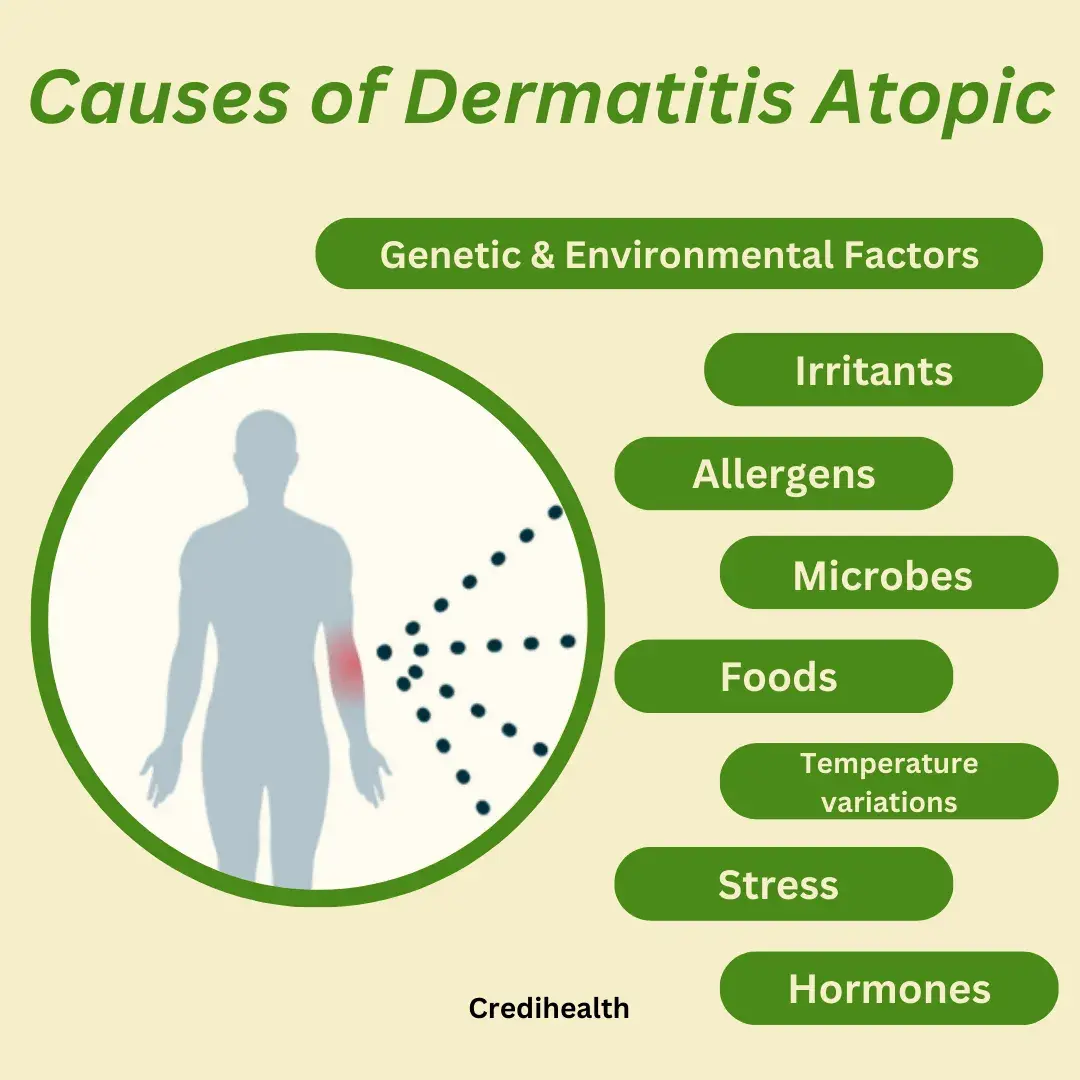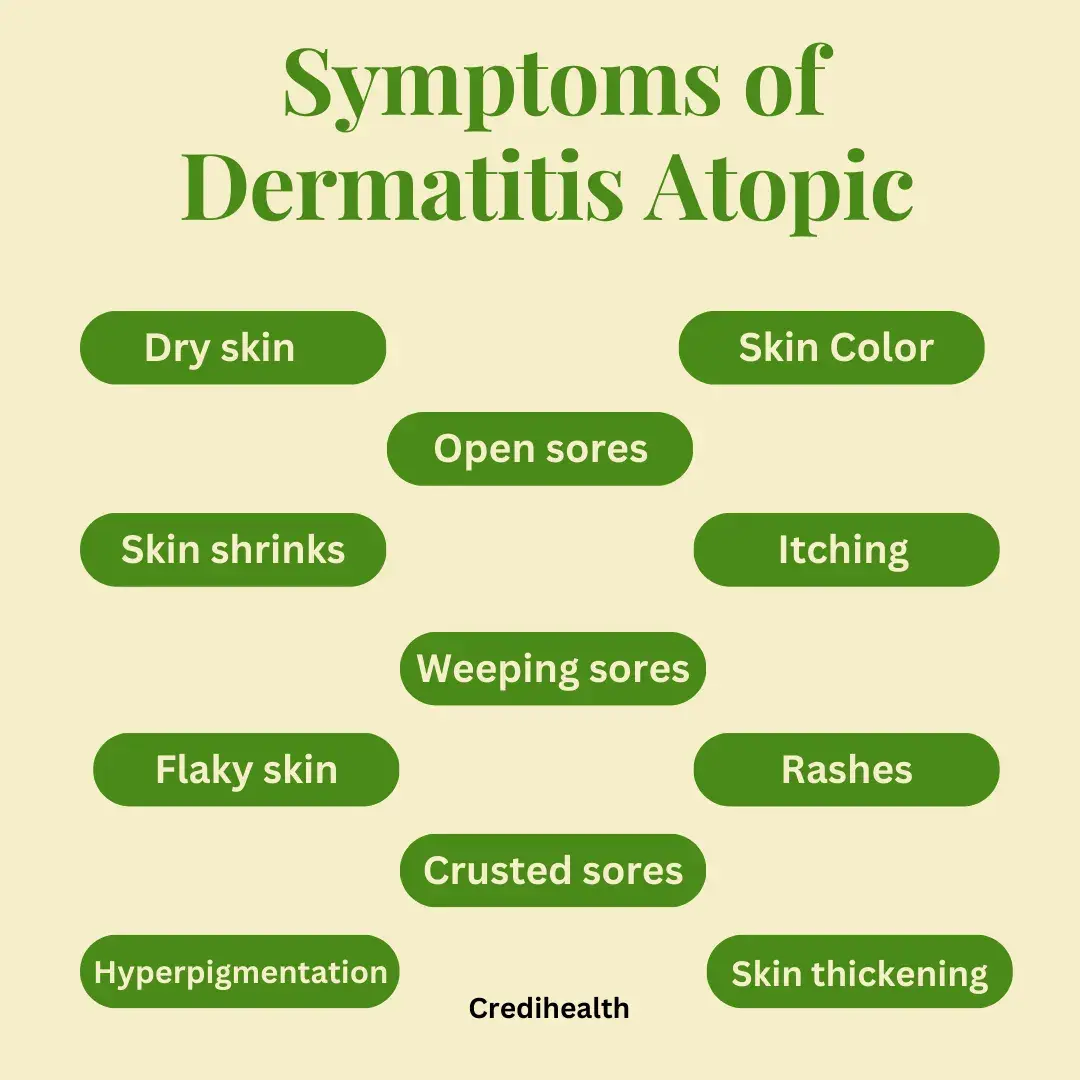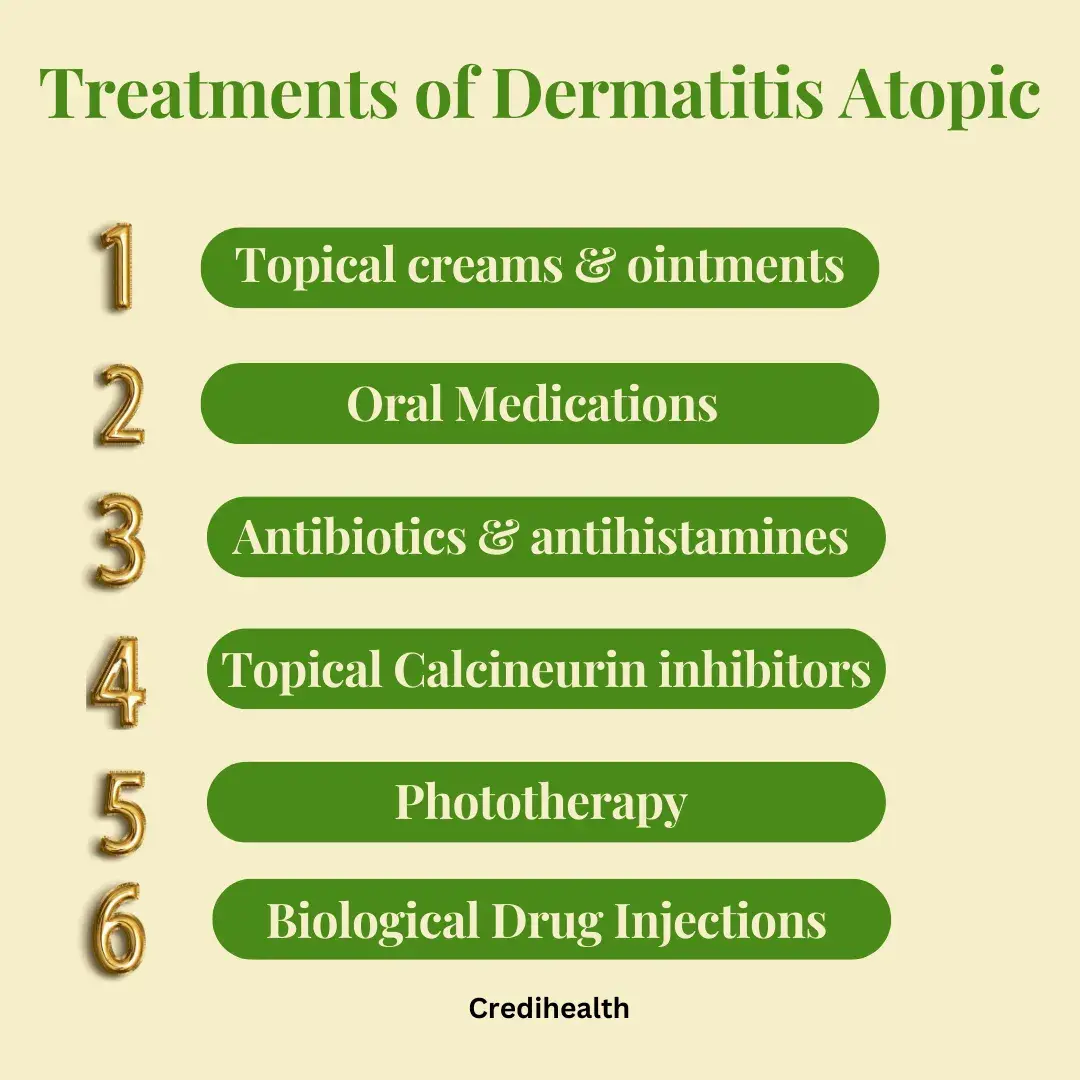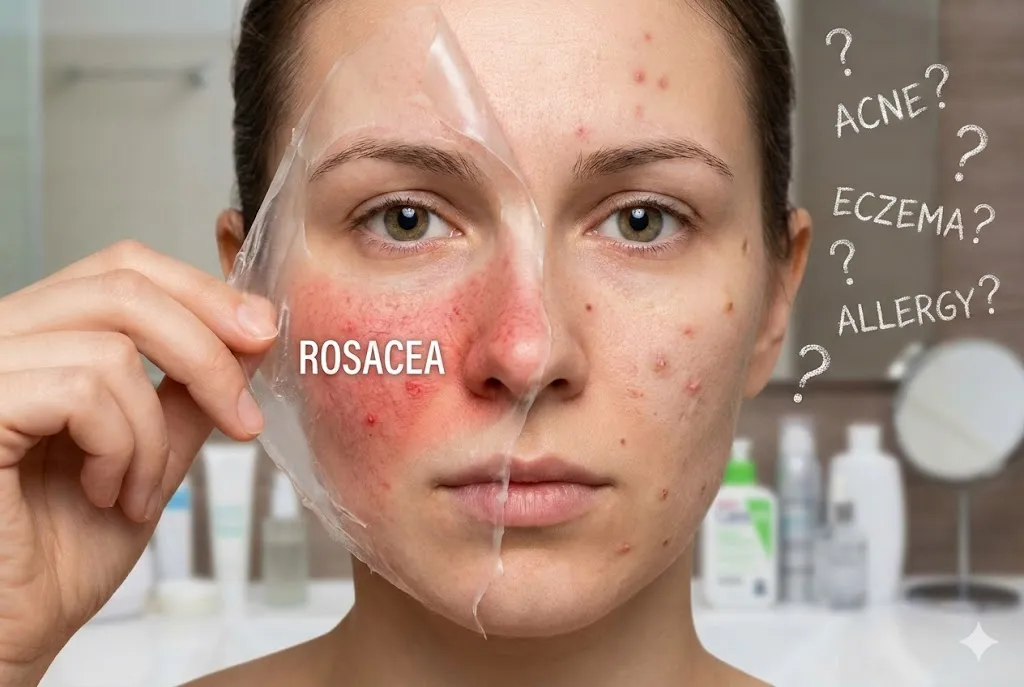Atopic Dermatitis Causes
 Causes of Dermatitis atopic conditions are given below: 1. Genetic and environmental factors: Pollutants and specific genes can result in excessive flare-ups.2. Irritants: Soaps, detergents, shampoos, and molds.3. Allergens: Dust, mites, pets, pollens, and others can lead to these allergens.4. Microbes: Viruses and fungi5. Foods: Soy, wheat, and eggs or dairy6. Temperature variations: Changes in the weather condition can result in flare-ups.7. Stress: It can make symptoms worse8. Hormones: The changes in the female hormones during pregnancy can result in Dermatitis.Also, it is equally important to identify the trigger or cause of this condition as they can help suggest better treatment plans for doctors. There are people who outgrow this condition, while others may continue to struggle with it for longer. Also Read: 13 Common Female Hormones Imbalance Symptoms You Should Know
Causes of Dermatitis atopic conditions are given below: 1. Genetic and environmental factors: Pollutants and specific genes can result in excessive flare-ups.2. Irritants: Soaps, detergents, shampoos, and molds.3. Allergens: Dust, mites, pets, pollens, and others can lead to these allergens.4. Microbes: Viruses and fungi5. Foods: Soy, wheat, and eggs or dairy6. Temperature variations: Changes in the weather condition can result in flare-ups.7. Stress: It can make symptoms worse8. Hormones: The changes in the female hormones during pregnancy can result in Dermatitis.Also, it is equally important to identify the trigger or cause of this condition as they can help suggest better treatment plans for doctors. There are people who outgrow this condition, while others may continue to struggle with it for longer. Also Read: 13 Common Female Hormones Imbalance Symptoms You Should KnowSymptoms of Dermatitis atopic -
 The symptoms of this condition can vary from person to person. In addition, as the causes and triggers are different, the symptoms can also vary depending on the person's age and severity. These people can experience different conditions of severity and can be varied by individual. In addition, people with the disease can often experience periods when their symptoms can worsen and when they will clear up. The common symptoms that can be seen in people of all age groups can be-
The symptoms of this condition can vary from person to person. In addition, as the causes and triggers are different, the symptoms can also vary depending on the person's age and severity. These people can experience different conditions of severity and can be varied by individual. In addition, people with the disease can often experience periods when their symptoms can worsen and when they will clear up. The common symptoms that can be seen in people of all age groups can be-- Dry skin
- Flaky skin
- Skin color looks whitish or pale
- Skin shrinks
- Itching can be seen
- Weeping sores
- Crusted sores
- Open sores
- Rashes can be developed
- Hyperpigmentation
- Rashes with leaking liquids and extreme itchiness that can interfere with sleep
- Bumpy raised rash
- Skin thickening
- Dry skin in affected areas
Diagnosis of Dermatitis atopic -
To diagnose the condition, the healthcare provider will ask a few questions regarding the flare-up of the state, and then they will examine the redness of the skin. Next, they can ask for a few tests to identify allergies and rule out skin diseases. If you think certain foods can cause rashes, they can be allergens that can flare up your Dermatitis. Thus, the doctor can also help identify your trigger for flare-ups.Treatments of Dermatitis atopic -
 The treatment for atopic Dermatitis is not present currently, but their management and prevention of flare-ups can be treated with medication and home care. The treatments can help heal the affected skin area and prevent symptoms from developing. However, the doctor should always suggest treatment plans based on the condition's symptoms. A doctor can help prescribe different medications depending on the severity and symptoms of the condition.
The treatment for atopic Dermatitis is not present currently, but their management and prevention of flare-ups can be treated with medication and home care. The treatments can help heal the affected skin area and prevent symptoms from developing. However, the doctor should always suggest treatment plans based on the condition's symptoms. A doctor can help prescribe different medications depending on the severity and symptoms of the condition. 1. Topical creams and ointments -
These can be anti-inflammatory medications and should relieve the symptoms of eczema. These can be applied directly to the skin; some may benefit from a stronger prescription. You can also check the best Eczema creams.2. Oral Medications -
A doctor can also prescribe oral medication like systemic corticosteroids or immunosuppressants. These can be available as injections or oral tablets. People should use these for a shorter period and can also note the symptoms may worsen after taking the medication. In that case, do not continue taking these oral medications. Also Read: 10 Best Body Lotion for Dry Skin to Stock Up On This Winter3. Antibiotics and antihistamines-
Antibiotics and antihistamines can reduce the risk of nighttime scratching, and they may tend to cause drowsiness. These can reduce the risk of nighttime scratching and can grow to cause drowsiness. Book an Online Appointment With Drowsiness Doctors in India4. Topical Calcineurin inhibitors-
These drugs can help suppress the activities of the immune system. Thus they can help reduce inflammation and can help prevent flare-ups in the skin. In addition, these can help with rashes or fluids coming out of rashes in severe cases of Dermatitis.5. Phototherapy-
Phototherapy can involve the exposure of UVA and UVB waves. These waves can treat moderate Dermatitis and closely monitor the skin throughout the treatment. In addition, these waves tend to dry out the infections and prevent the further spread of the diseases.6. Biological drug injections-
These biological drug injections are protein blockers and can help limit the immune system and its responses. Like topical inhibitors, they can reduce inflammation and flare-ups on the skin. Some people can get relief from Dermatitis with home care products, while others might require medical attention.Tips to prevent the flare-ups of Dermatitis atopic-
You can prevent a dermatitis atopic flareup by following these tips,- One can try taking lukewarm baths.
- Apply moisturizers within 3 minutes of taking the bath
- Moisturize your skin every day
- Wear soft cotton fabrics
- Avoid touching or scratching the infected skin
- Use a humidifier in dry or cold conditions
- Use a mild soap or non-soap cleanser
- Air dry or gently dry the skin area.
- Keep nails short and avoid changes in temperatures.
Additional Tip -
Even though the condition can not be cured independently, the person should consult with the doctor for a tailored treatment plan per their needs or the severity of their condition.Even after the skin has healed, it can still flare ups and may quickly become irritated after the treatments.Conclusion-
Atopic Dermatitis is an inflammatory condition of the skin. The most common type of atopic Dermatitis is seen in children, but they usually grow it out after a few years. Eczema can cause a lot of discomfort and vary in severity. It can be present depending on the person's age, and with a darker skin tone, the symptoms may be more challenging. Although no cures exist, people can treat and prevent eczema using flares, remedies, moisturizers, and medication or lifestyle changes.Frequently Asked Questions
What is a good treatment for atopic Dermatitis?
Hydrocortisone creams can help relieve the symptoms of atopic Dermatitis. In addition, these can help reduce the itching and scaling in the scalp. Apart from these creams, you can also use oral antihistamines and diphenhydramine, which can help reduce itching in the scalp.
How is atopic Dermatitis tested?
The doctor can recommend patch testing to confirm if you have atopic Dermatitis. In these tests, a small number of different substances are applied to the scalp and then covered for some time, after which the doctor checks for the condition of atopic Dermatitis.
What are the leading causes of atopic Dermatitis?
Many factors or allergens can be a reason for the development of atopic Dermatitis, like cold, dry weather, dampness, and more specific things such as dust. Mites and pollen or molds. Some people can also develop food allergens like cow'scow's milk, peanuts, and soya bean.
Is atopic Dermatitis a severe disease?
Atopic Dermatitis is a long-lasting condition and tends to flare up sometimes. It can be irritating and contagious, but people with Dermatitis are at risk of developing food allergies, hay fever, and asthma.

Reviewed by







